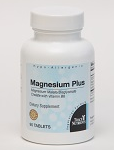
Table of Contents
The Role of Magnesium in Energy Production
What is Magnesium?
Magnesium is an essential mineral that plays a vital role in numerous bodily functions. Found naturally in foods and available as a dietary supplement, magnesium is crucial for maintaining various biochemical processes in the body. It supports muscle and nerve function, regulates blood pressure, and contributes to the structural development of bones. Interestingly, despite its importance, many people do not consume enough magnesium through their diet.
As the fourth most abundant mineral in the human body, magnesium is involved in over 300 enzymatic reactions. This mineral is primarily stored in bones, muscles, and soft tissues, making it integral to our overall health. Understanding magnesium’s various functions can shed light on its significance in our daily lives.
How Magnesium Fuels Our Cells
Magnesium is crucial for cellular energy production. It assists in the conversion of food into energy by acting as a cofactor for ATP (adenosine triphosphate) production. ATP is essentially the energy currency of the cell, allowing various biological processes to occur. Without adequate magnesium levels, our cells cannot efficiently generate ATP, leading to a decrease in energy availability.
By supporting mitochondrial function—the powerhouse of the cell—magnesium helps ensure that our bodies have the energy they need to perform tasks ranging from muscle contraction to nerve signaling. Therefore, maintaining adequate magnesium levels can significantly influence our energy levels and overall vitality.
The Connection Between Magnesium and ATP
The relationship between magnesium and ATP is particularly noteworthy. ATP can exist in two forms: free ATP and magnesium-bound ATP. The latter is the form that is biologically active and usable by the body. Magnesium ions stabilize ATP, allowing it to interact with various enzymes and proteins effectively. Without magnesium, ATP cannot exert its metabolic roles, leading to compromised energy production and cellular function.
Furthermore, magnesium’s role in ATP synthesis highlights the need for sufficient magnesium intake, especially for individuals who engage in high levels of physical activity or have increased stress levels. Supplementing with magnesium or consuming magnesium-rich foods can help sustain optimal ATP production and energy levels.
Symptoms of Magnesium Deficiency
Physical Signs to Watch For
Magnesium deficiency can manifest in several physical symptoms, which can range from mild to severe. Common signs include muscle cramps, twitches, and spasms, which often occur due to the mineral’s role in muscle contraction and relaxation. Fatigue is another prevalent symptom, as low magnesium levels can lead to decreased energy production.
Other physical signs include loss of appetite, nausea, and vomiting. In more severe cases, magnesium deficiency can lead to numbness, tingling, or even seizures. Recognizing these symptoms early can be crucial for addressing potential deficiencies and maintaining overall health.
Mental Health and Magnesium Levels
The Role of Magnesium isn’t just important for physical health; the role of magnesium is significant in mental well-being. Research has shown a connection between magnesium levels and mood regulation, with low magnesium linked to conditions such as anxiety and depression. The mineral aids in neurotransmitter function, particularly serotonin, which is often referred to as the feel-good hormone.
Individuals experiencing mental health issues or heightened stress levels may benefit from monitoring their magnesium intake. Ensuring adequate magnesium levels can potentially improve mood and alleviate symptoms of anxiety, contributing to a more balanced mental state.
Long-term Effects of Deficiency
Chronic magnesium deficiency can lead to a myriad of long-term health issues. Studies have linked low magnesium levels to an increased risk of developing conditions such as osteoporosis, cardiovascular diseases, and even type 2 diabetes. This is largely due to the role of magnesium in bone health, heart function, and insulin sensitivity.
Moreover, prolonged deficiency can exacerbate inflammation in the body, contributing to various chronic health problems. It’s essential to be proactive about magnesium intake to avoid these potential long-term health consequences.
Sources of Magnesium-Rich Foods
Top Food Sources of Magnesium
Incorporating magnesium-rich foods into your diet is one of the most effective ways to ensure you’re meeting your daily requirements. Some of the best sources of magnesium include leafy green vegetables, nuts, seeds, whole grains, and legumes. For instance, spinach, kale, almonds, pumpkin seeds, and black beans are all excellent choices.
Other notable sources include dark chocolate, avocados, and fatty fish like salmon. By diversifying your diet and including these foods, you can easily enhance your magnesium intake and improve overall health.
Creative Ways to Incorporate Magnesium into Your Diet
Adding magnesium-rich foods to your meals can be both enjoyable and easy. For example, you can whip up a delicious spinach salad topped with nuts and seeds for a healthy lunch. Smoothies made with banana, avocado, and greens also provide a nutrient-dense option that’s packed with magnesium.
Furthermore, consider snacking on dark chocolate or making a trail mix with nuts and dried fruits for a tasty and healthy treat. Experimenting with different recipes can make increasing your magnesium intake fun and flavorful!
Supplements: When and How to Use Them
While obtaining magnesium from food sources is ideal, some individuals may find it challenging to meet their daily needs through diet alone. In such cases, magnesium supplements can serve as a beneficial alternative. However, it’s important to consult a healthcare professional before beginning any supplementation, as they can provide personalized advice based on individual health conditions and requirements.
There are various forms of magnesium supplements available, including magnesium citrate, magnesium oxide, and magnesium glycinate. Each type has its own absorption rates and potential benefits. Understanding the differences can help you choose the best option for your needs.
12 Types of Magnesium Supplements – amount of elemental Mg+ / tablet size
Magnesium Arginate 32.5 mg / 500 mg – nutritional support for people with glucose issues
Magnesium Aspartate 37.4 mg / 500 mg – promotes cellular energy
Magnesium Chloride 186 mg / 1650 mg – pills/capsules or liquid, nourishes and soothes skin in oil form
Magnesium Citrate 330 mg / 2000 mg – budget friendly, capsules/tablets, ionic liquid or drink mix
Magnesium Glycinate 90 mg / 750 mg – optimum availability
Magnesium Lysinate – may support gastric health
Magnesium Malate 150 mg / 1000 mg – supports ATP production and cellular energy
Magnesium Orotate 63 mg / 1000 mg – heart health support
Magnesium Oxide 300 mg / 1000 mg – common inexpensive form of magnesium, strong laxative effect
Magnesium Sulfate 49 mg / 500 mg – also known as Epsom salts, provides sulfur, soothes tired muscles
Magnesium Taurate 200 mg / 2500 mg – heart health support, promotes calmness
Magnesium Threonate 96 mg / 1340 mg – promotes mental sharpness and cognitive health
Conclusion
Magnesium is truly an unsung hero in the realm of health and wellness. Its vital role in energy production, mental health, and overall bodily function cannot be overstated. From preventing deficiency symptoms to supporting long-term health, ensuring adequate magnesium intake is essential for everyone. By making informed dietary choices and considering supplementation if necessary, you can help maintain optimal magnesium levels for a healthier, more vibrant life.
FAQ’s About Magnesium for the Body
What are the daily recommended intake levels for magnesium?
Daily recommended intake levels for magnesium vary by age and gender. Generally, adult men should aim for 400-420 mg, while adult women should target 310-320 mg of magnesium per day.
Can Magnesium supplements cause side effects?
While magnesium supplements are generally safe, excessive intake can lead to side effects such as diarrhea, nausea, and abdominal cramping.
How can I tell if I am magnesium deficient?
Some common symptoms of magnesium deficiency include muscle cramps, fatigue, and mood changes. If you suspect a deficiency, consider one of our at home health tests which can report your magnesium level and recommend dietary changes.
Are there specific populations that need more magnesium?
Yes, certain populations, including athletes, pregnant women, and individuals with gastrointestinal diseases, may require higher magnesium intake due to increased physiological demands or absorption issues.
What are the best food sources of magnesium?
Top food sources of magnesium include leafy greens (like spinach), nuts (such as almonds), seeds (like pumpkin seeds), whole grains, legumes, and dark chocolate. Incorporating these foods into your diet can help boost your magnesium levels.
What are the 3 main functions of magnesium?
Magnesium is essential for energy production, muscle and nerve function, and bone health.
What is the main benefit of magnesium?
Magnesium helps regulate blood sugar levels.
What are the symptoms of low magnesium?
Symptoms of low magnesium include muscle cramps, fatigue, high blood pressure, irregular heartbeat, and loss of appetite.
Is it okay to take magnesium every day?
Yes, it is generally safe to take magnesium supplements daily.
At Home Tests
-
←→

Analytical Research Labs Hair Test
$179.00$149.00Providing a mineral blueprint of one’s biochemistry, an Analytical Research Labs Hair Minerals Test reports levels of minerals and heavy metals in your body giving possible reasons for your symptoms, with suggestions for nutritional supplements and diet changes. Hair tissue mineral analysis can provide pertinent information about balanced nutrition, one’s metabolic rate, energy levels, sugar and carbohydrate tolerance, stage of stress, immune system and glandular activity.- Buy 2 at $145.00
Analytical Research Labs Hair Test
$179.00 $149.00Successfully Added to your Shopping CartAdding to Cart... -
←→

Trace Elements Nutritional Deficiencies Hair Test
$188.00 $148.00Successfully Added to your Shopping CartAdding to Cart... -
←→

Doctors Data Hair Elements Test
$159.00$123.00The Doctors Data Hair Elements Test for Minerals and Common Toxic Elements can determine your nutritional status as well as your body load of common heavy metals.- Buy 2 at $119.00
Doctors Data Hair Elements Test
At Home Health Tests, Toxic Metals Tests, Hair Tests, Fatigue Solutions, Inflammation Solutions, Memory Loss Solutions$159.00 $123.00Successfully Added to your Shopping CartAdding to Cart... -
←→

Doctors Data Urine Nutrients and Toxic Elements Test
$305.00$175.00Evaluate nutritional status and the efficacy of mineral supplementation. in an unprovoked specimen, early indication of renal dysfunction can be gleaned from urinary wasting of essential elements such as magnesium, calcium, potassium and sodium.- Buy 2 at $170.00
Doctors Data Urine Nutrients and Toxic Elements Test
$305.00 $175.00Successfully Added to your Shopping CartAdding to Cart...
Products
-
←→

Magnesium Orotate
Supplements, Mineral Supplements, Heart Solutions, Digestive Solutions, Immune System Solutions, Immune System Supplements$25.10Successfully Added to your Shopping CartAdding to Cart... -

-
←→

Magnesium Arginate w/ Aspartate
Supplements, Mineral Supplements, Muscle Solutions, Heart Solutions, Diabetes Solutions, Nerve Damage Solutions, Immune System Supplements, Immune System Solutions$12.70Successfully Added to your Shopping CartAdding to Cart... -
←→

K-MG Potassium Magnesium
Supplements, Mineral Supplements, Headache Solutions, Heart Solutions, Muscle Solutions, Lung Solutions, Memory Loss Solutions, Anxiety / Depression Solutions$13.10Successfully Added to your Shopping CartAdding to Cart... -
←→

Magnesium 2-AEP
Supplements, Mineral Supplements, Heart Solutions, Immune System Supplements, Immune System Solutions, Muscle Solutions, Nerve Damage Solutions, Lung Solutions$14.40Successfully Added to your Shopping CartAdding to Cart...
References
- https://ods.od.nih.gov/factsheets/Magnesium-HealthProfessional/
- https://fdc.nal.usda.gov/
- https://www.dietaryguidelines.gov
- https://www.ncbi.nlm.nih.gov/pmc/articles/PMC4586582/
- https://www.ncbi.nlm.nih.gov/pmc/articles/PMC6692462/
- https://www.ncbi.nlm.nih.gov/pmc/articles/PMC5452159/
- https://www.ncbi.nlm.nih.gov/pubmed/24500155
- https://www.ncbi.nlm.nih.gov/pubmed/25748766
- https://www.ars.usda.gov/ARSUserFiles/80400530/pdf/0506/usual_nutrient_intake_vitD_ca_phos_mg_2005-06.pdf
- https://www.ncbi.nlm.nih.gov/pubmed/22972143

